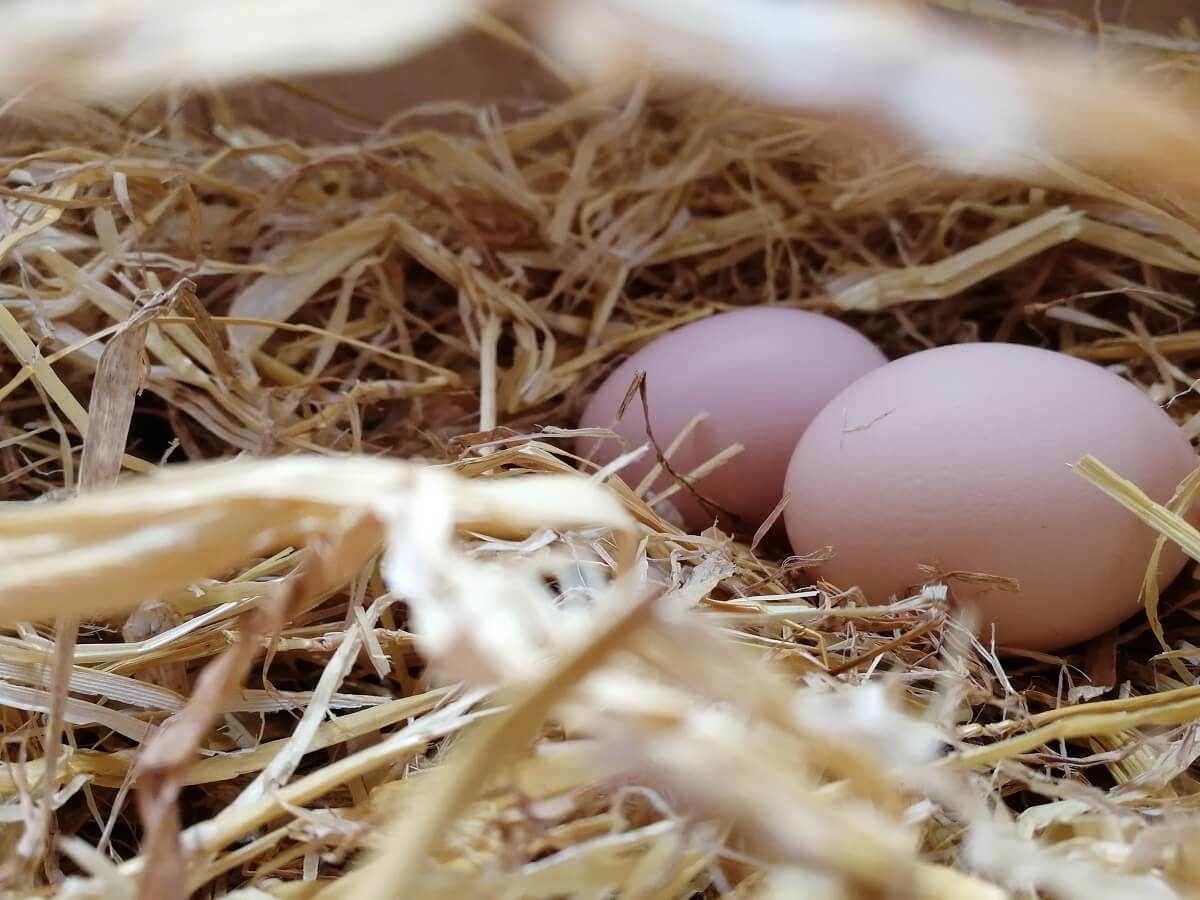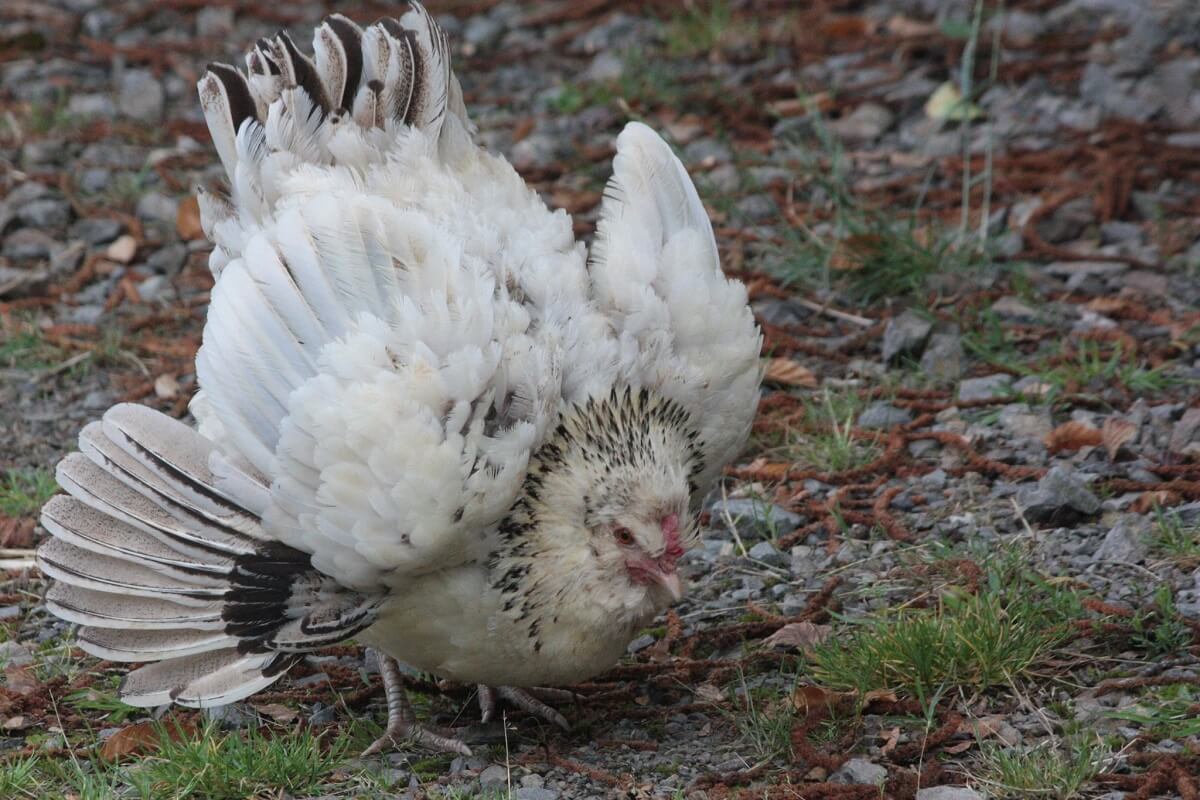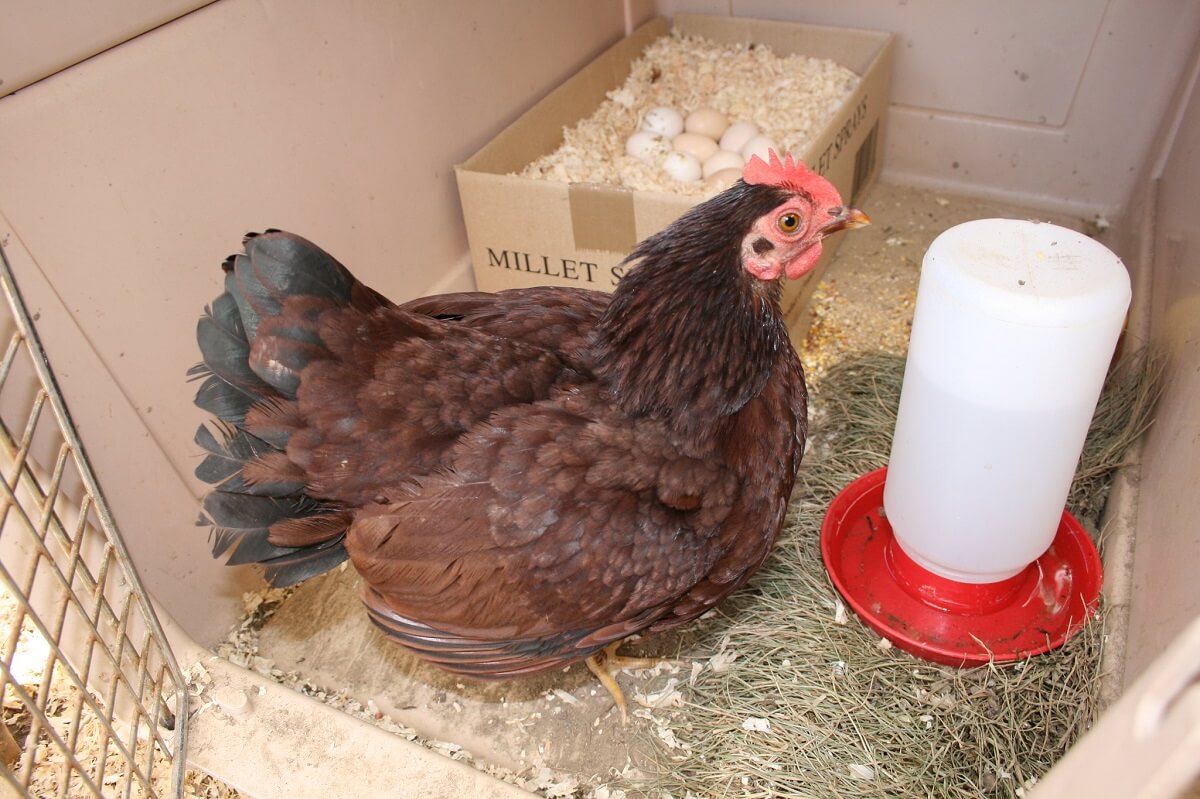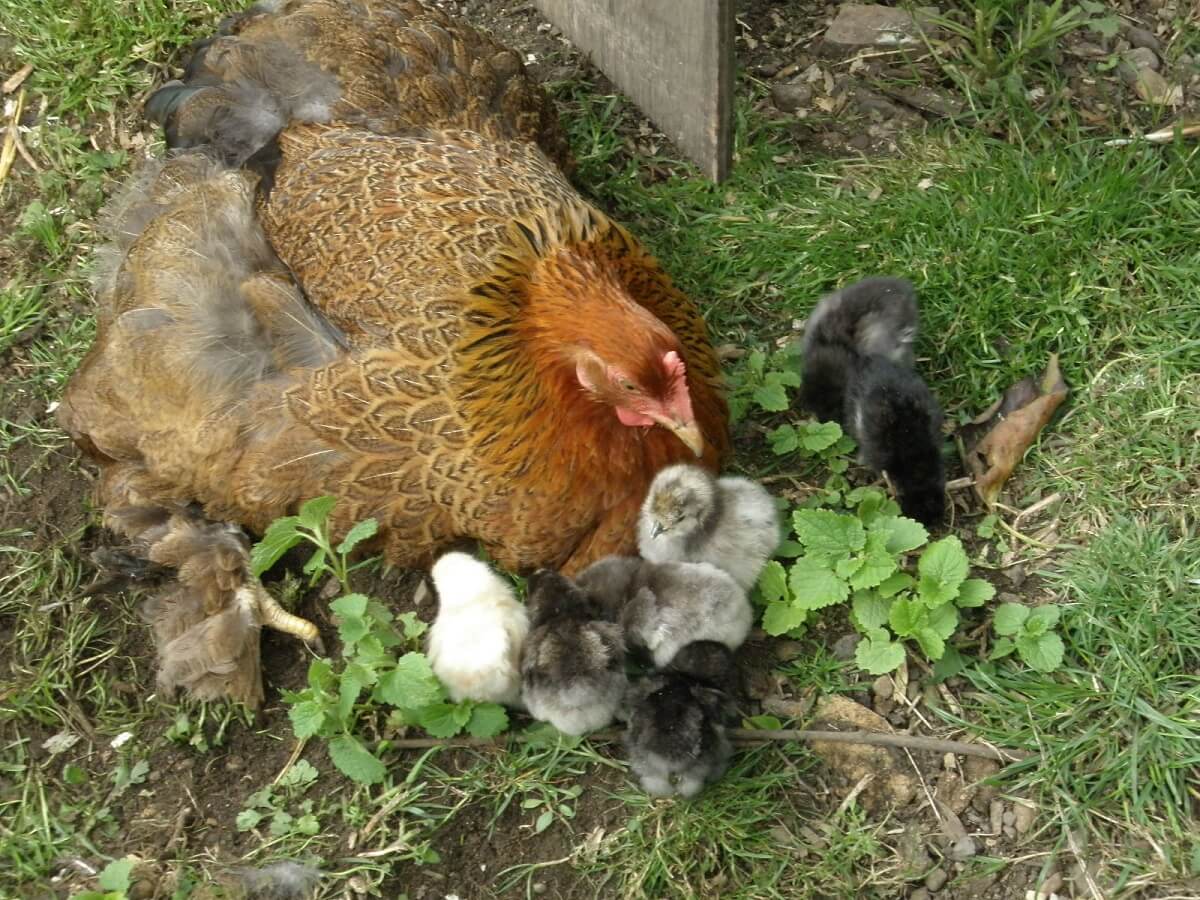How To Hatch Eggs With Your Hens (Without An Incubator Or Brooder)
So you have started down the wonderful path of chicken ownership. You raised a few hens and are ready to increase your flock. You can raise chicks from your own flock and have your hen do all the work. There is no need to invest in an incubator or brooder box. And there is nothing more satisfying to your chicken world than watching a hen hatch a clutch of eggs.
Today, I am going to give you several tips to help your hen do what she instinctively knows: Hatch her eggs. It amazes me that a hen I have either purchased from a hatchery or hatched in the incubator, knows how to set on a nest, hatch the eggs, and take care of the chicks — even though she didn’t start out that way.
Your hen may or may not need help hatching her eggs, but here are some things to consider.
1. Find Fertile Eggs
Before you can get your broody hen to hatch eggs, you will need to identify some fertile eggs. There are two ways to obtain fertile eggs.
Get Fertile Eggs From Your Flock’s Rooster
If you have a rooster, your eggs will be fertile. This may be obvious to most people, but if you are brand new to raising chickens, you may not have thought of it. Mainly because hens will lay eggs whether or not there is a rooster in your flock. If you do not have a rooster, the eggs are unfertilized. Once you have a rooster who services your hens, the eggs will be fertile.
Purchase Fertile Eggs
If you are not allowed to have a rooster where you live, you can still hatch chicks. You simply find someone who has a rooster with their hens and purchase eggs from them. You must wait until you have a broody hen. Replace your unfertilized eggs with the fertile ones, and you’re all set.

If you are not sure where to find fertile eggs you can look on Craigslist or Facebook Marketplace for someone who sells eggs. You can also go to your local farmers market, find someone who sells eggs, and ask them if they have a rooster.
Related Post: Chicken Hatcheries
If they wash their eggs, ask them to save you unwashed, fresh eggs to purchase. Washed eggs do not have as high a hatch rate as unwashed eggs.
2. Identify A Broody Hen In Your Flock
One important thing to remember is that you can’t really force a hen to set on eggs. A hen will become broody — which means she is inclined or wanting to hatch eggs.

Signs Of A Broody Hen
- She sits in the nesting box all day.
- When you try to collect the eggs under her, she “growls”, fluffs out her feathers, and pecks at you.
- She lays her eggs in a hidden nest rather than the nesting box.
- When you remove her from the nest, she is very vocal and acts strangely. She stays low to the ground, fluffs out, and clucks continually. She usually returns to the nesting boxes quickly.
3. Separate The Broody Hen From The Flock
After you have identified the broody hen, it is important that you separate her from the flock and don’t allow any other hens around her.
The main reason for this is if she is in a nesting box, other hens will continue to lay eggs there. You will end up with too many eggs at all different stages of incubation.

Once you have separated her, put her in a private area. It can even be a box in your garage because the hen stays on the nest almost continually. She will only leave the nest for food and water a couple times a day.
Related Post: Buying Baby Chicks: A First-Timer’s Guide
She doesn’t need much space at all. It is important that it’s a quiet, dry place, free from drafts and predators including family dogs and cats.
Simply give her a small straw nest and place the eggs under her. I like to give her eggs from other hens as well as her own. This will ensure a variety of chicks.
How Many Eggs Should You Let Her Sit On?
This is a somewhat controversial question. I don’t think there is a perfect number. My mother-in-law who is well into her 90s (and has raised chickens her whole life) only lets the hen have a handful of eggs. She says never more than six eggs and usually 3 to 5.
I, on the other hand, push the envelope and give the hen 10 to 12 eggs. I figure if she is going to sit there for three weeks, it may as well be worth it!
Consider the size of the hen. A larger hen can obviously handle more eggs than a bantam hen. I once had a sneaky hen (who I didn’t know had gone to setting) hatch 21 eggs!
Write Down The Date
The incubation time for chicken eggs is 21 days. Write the date she went to setting on the calendar and count ahead 21 days for the hatch date. You may think you will remember, but I highly suggest you write down these dates because life gets busy and you may forget.
4. Leave The Hen Alone
Check on your hen twice a day. Then, just leave the hen alone and don’t handle her. She will probably come off the nest to eat and drink when nobody is around. You will be able to tell because the food will be disturbed.
If the hen removes an egg from her clutch, dispose of it (she can tell it’s a dud). You could double-check by candling it, but most likely she is right.
5. Prepare For The Big Hatch
Monitor the hen more closely the last few days, but try to resist the urge to constantly disturb her. I lift the hen up once a day to look for chicks. If there are chicks, I remove the shells. Sometimes the hen will eat part of the shell and that is okay. It contains nutrients she needs.

Like any newborn baby, the chicks will sleep a lot and stay under their mother for the first few days. The hen will leave the nest and start taking t
from How To Hatch Eggs With Your Hens (Without An Incubator Or Brooder)
first seen at https://ift.tt/31eMmy9
 She will sit here faithfully for over 3 weeks, only getting up for a few seconds at a time to grab food or a drink a few steps away. That’s it, literally. She will faithfully turn them several times a day. Then she will keep her babies warm when they hatch, and introduce them slowly to the rest of the flock, protecting them fiercely. She will teach them everything they need to know. And she does all of this on instinct. The most expensive fancy incubators on the market can’t compare to her hatch rate! That’s because you can’t synthesize a mother’s love
She will sit here faithfully for over 3 weeks, only getting up for a few seconds at a time to grab food or a drink a few steps away. That’s it, literally. She will faithfully turn them several times a day. Then she will keep her babies warm when they hatch, and introduce them slowly to the rest of the flock, protecting them fiercely. She will teach them everything they need to know. And she does all of this on instinct. The most expensive fancy incubators on the market can’t compare to her hatch rate! That’s because you can’t synthesize a mother’s love 